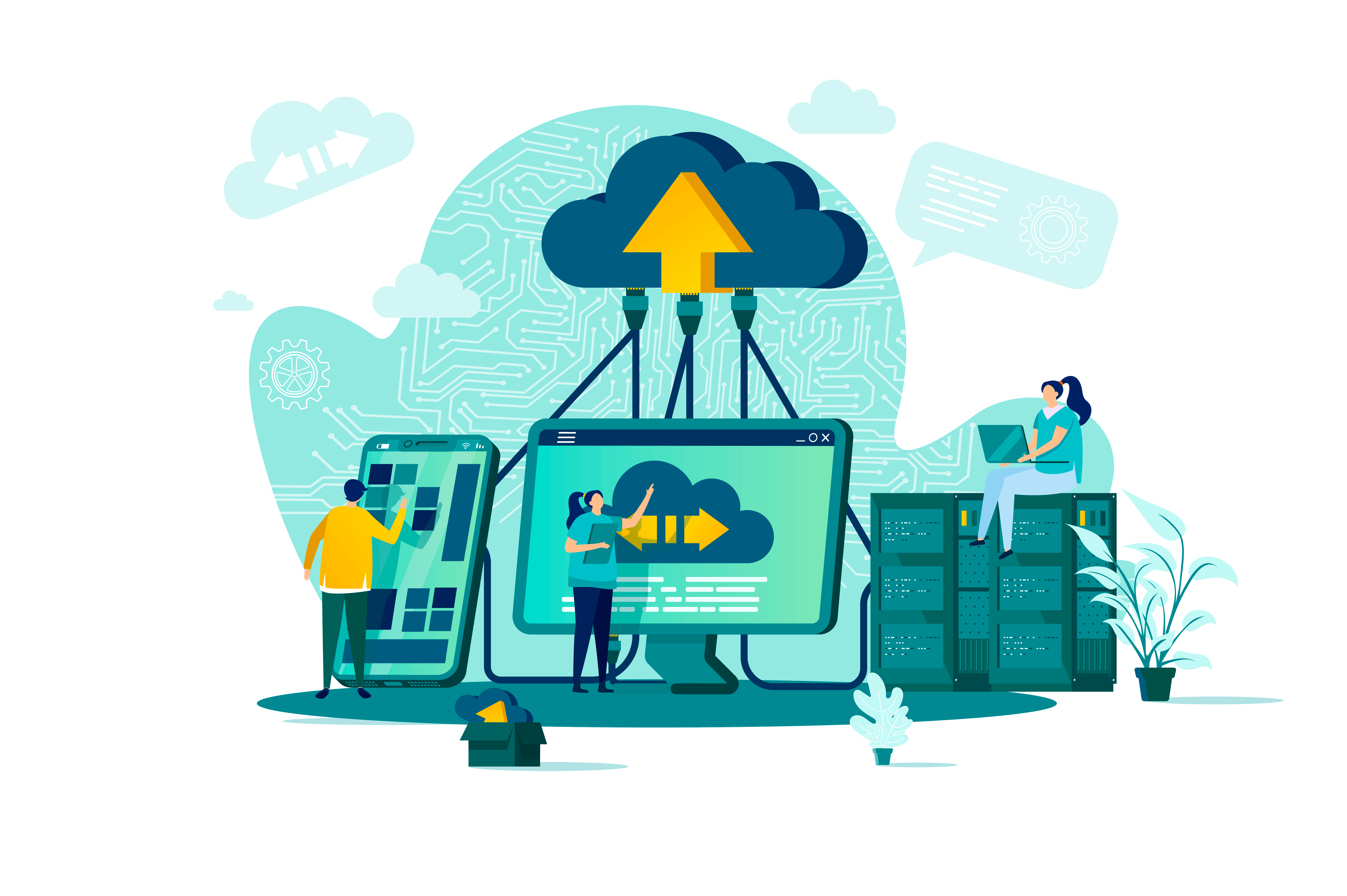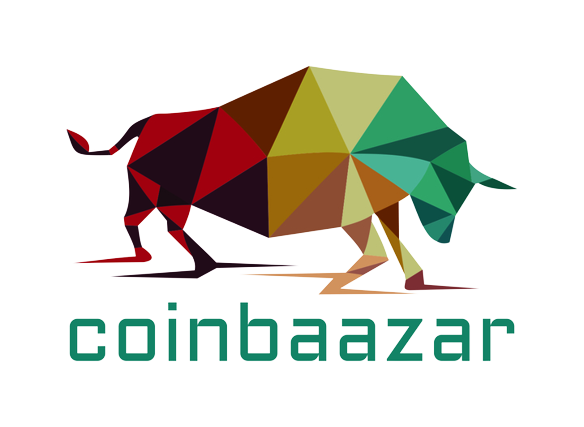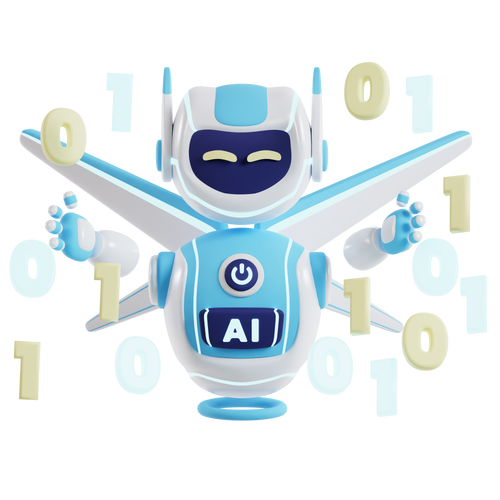What exactly is quantum computing?
Quantum computing is a branch of quantum mechanics, which is concerned with the mathematical description of natural properties at the level of atomic and subatomic particles such as electrons and photons.
Quantum computing employs subatomic particles to transform computers into powerful machines capable of rapidly calculating and processing data. They achieve extreme speed due to qubits (quantum bits) ability to exist in one and zero states simultaneously, or any linear combination of the two. On the other hand, binary systems in conventional computers only have one (“on” or “true”) or zero (“off” or “false”) state. Qubits enable these particles to exist in multiple states at the same time.
In other words, the ability to exist in both one and zero states at the same time allows quantum computers to process massive amounts of data at the same time. This is not possible in binary-based computer systems, which can only process one piece of data at a time.
In the 1980s, physicists Richard Feynman and Yuri Manin discovered that quantum theory and algorithms could be applied to computing with more efficient results than their classical counterparts.
Applied quantum computing is still in its infancy, but it will have a wide-ranging impact, particularly in helping large organizations deal with massive amounts of data more quickly and efficiently.
Because of their ability to solve highly complex problems, such as processing massive amounts of data quickly or providing better prediction models in a variety of fields, quantum computers have the potential to break existing encryption protocols, posing a threat to blockchain technology and cryptocurrencies.
What exactly is cloud computing?
Cloud computing, or “the cloud,” is an application-based software that distributes computing services over the internet by storing and processing data on third-party servers, storage, databases, networking, software, analytics, and intelligence.
Prior to cloud computing, businesses had to purchase and maintain their own servers with enough space to prevent downtime and outages while also managing peak traffic volume.
Nonetheless, much server space went unused, wasting money and resources. The cloud computing ecosystem enables organizations to use a more efficient and cost-effective solution that does not require costly hardware, private data centers, or software installation, instead focusing on innovation, dynamic resources, and economies of scale.
Cloud computing was invented in the 1960s, but it became more popular in the 2020s as a more productive computing system was required to handle the challenges of remote working that arose during the pandemic.
Other than managing, accessing, and storing data and applications remotely, cloud computing allows many businesses to share services instantly and at any time. They save time and money by using the cloud for scalable storage of files, applications, and various types of information.
How does quantum computing operate?
A traditional processor uses bits to process operations and run programs, whereas a quantum computer uses qubits to run multidimensional quantum algorithms.
Quantum computers use a wide range of multidimensional algorithms to perform measurements and observations using qubits, which can represent both 0 and 1. The processing power of such multidimensional spaces grows exponentially as the number of qubits increases.
Quantum computers are smaller and use less energy than supercomputers, which are high-performance computers compared to general-purpose computers. A quantum processor is roughly the size of a laptop processor, whereas a quantum hardware system is mostly comprised of cooling systems.
Maintaining the hardware at a very cold temperature, about a hundredth of a degree above absolute zero, will help to reduce the high error rates associated with quantum computers. Such cooling systems are defined as superfluid, which must be capable of extra-cooling processors in order to create superconductors.
Electrons can move without resistance through this region, generating quantum information more quickly and efficiently and creating complex multidimensional spaces proportional to the number of qubits added.
The Benefits and Drawbacks of Quantum Computing
- Opportunities for multiple industries to develop and design advanced computer programs based on highly accurate, safe, and efficient data; • Improved and unbreakable data encryption methods for better fraud detection and overall data security.
- Unprecedented data processing speed to manage massive amounts of data at once, which conventional computers cannot do.
- By simulating complex molecular structures, quantum computing can aid in the development of new materials, medicines, and chemicals.
- Quantum computers are highly sensitive to external interference, such as temperature and electromagnetic radiation, which can affect calculation accuracy.
- Because of the scarcity of quantum computers and the resulting lack of mass adoption, developers are unable to properly assess their features and reliability.
- Because quantum computers require a large amount of data to function properly, businesses must invest in massive data storage systems to accommodate them.
How does cloud computing operate?
Cloud computing is hosted by specialized companies that maintain massive data centers to provide the required security, storage capacity, and computing power for the online infrastructure’s support.
Cloud services can be accessed through an internet connection and computing devices such as smartphones, laptops, and desktop computers. Users select a cloud computing hosting company and pay for access to their services. Such services include the infrastructure required to facilitate communication between devices and programs, such as downloading a file on a user’s laptop and instantly syncing it to the same user’s iPhone file folder.
A front end that allows users to access their stored data via an internet browser and a back end made up of servers, computers, databases, and central servers comprise cloud computing.
To facilitate operations and ensure smooth communication between cloud-connected devices, the central servers follow specific protocol rules.
Amazon Web Services, Microsoft Azure, Apple cloud, and Google Drive are just a few of the cloud hosting companies available.


The Benefits and Drawbacks of Cloud Computing
- Cloud computing enables businesses to scale their infrastructure on demand, allowing them to quickly and easily add and remove servers as their needs change. This allows businesses to meet unexpected market demands without worrying about capacity constraints.
- Cost-effectiveness for businesses because they do not need to invest in expensive hardware or software installations;
- Easy access to data and applications from anywhere with an internet connection.
- Security remains a concern for cloud computing due to its reliance on an internet connection, which can be vulnerable to hacking attacks.
- The high centralization of cloud servers means that services may go offline in specific locations during outages; even censorship resistance is compromised with centralized providers.
Will quantum computing eventually supplant cloud computing?
A new trend is emerging: cloud-based quantum computing, which combines both technologies and their benefits while also providing direct access to quantum computers via the web via the cloud.
While quantum computing is unlikely to replace the cloud anytime soon, big tech companies are working to integrate the two solutions to get the best of both worlds. Such integration can enable remote access to quantum computers via the cloud, making them more accessible to a broader range of users.
Cloud-based quantum computers have the potential to accelerate the pace of technological innovation by streamlining the work of researchers and developers, who can access quantum hardware and computational resources through the cloud, resulting in faster breakthroughs and discoveries.

